Contents
The largest birds that people breed on their farms are turkeys. Of course, if you do not take into account such exotic as ostriches. One of the largest breeds is Canadian turkeys. These giants of the poultry yard reach a mass of 30 kg. This circumstance alone deserves closer attention to this bird.
Description of the Canadian breed of turkeys
The color of the feathers of Canadian turkeys can be white or black with white stripes on the tail. The tail is huge and fan-shaped. Strong long legs. A very broad sternum, which gave the Canadian breed the name broad-chested turkeys. Body tapering towards the back. The head looks typical for turkeys: bald with skin growths and a bag like a chin. You can see this miracle in the photo.
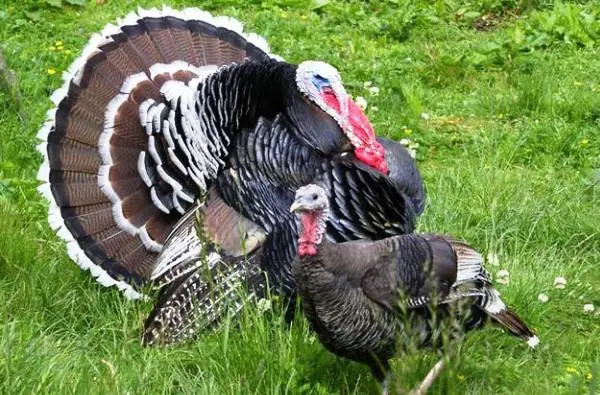
The massive appendage-chin increases in size if the bird is in an excited state. Sizes can reach up to 15-20 cm.
The main advantage of Canadian turkeys is their rapid growth, turkeys reach their maximum weight of 30 kg, and turkeys reach 15-17 kg in a record time of 3 months. In the future, weight gain stops. At the same time, the meat of broad-chested Canadians has high palatability. It is tender, tasty and healthy. But that’s not all, Canadian breed turkeys start laying eggs early, making it very productive later. The egg-laying period lasts from 9 months to 14-15 months.
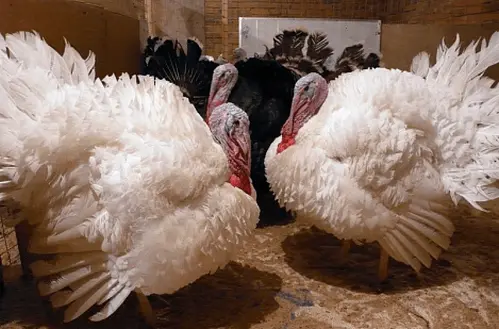
Contents of Canadian turkeys
To grow broad-chested Canadians, the following conditions must be met:
- The temperature of the room for keeping Canadian turkeys should range from +5 to +30 degrees. With turkeys, everything is much more complicated: they are very susceptible to various infections and cannot stand even a slight coolness. The temperature for their content is from 20 to 25 degrees;
- The Canadian breed of turkeys is very demanding on lighting, the rooms must be well lit;
- Spacious bright room, with perches at a height of up to a meter from the floor;
- The cleanliness of the premises and feeders is a prerequisite for the productive cultivation of Canadian turkeys;
- Two things should be absent in the room – dampness and drafts. Straw and hay bedding on the floor and perches should always be dry, in no case should they be allowed to rot.
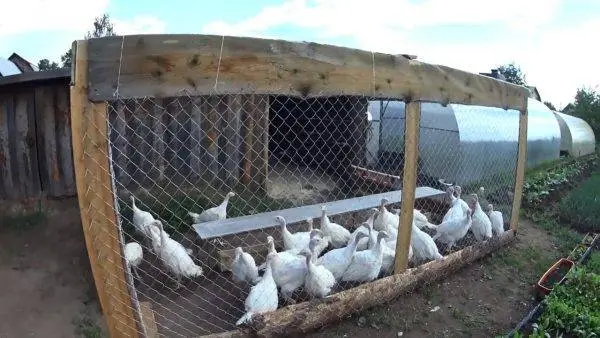
Food
Rapid growth and large downhole weight is possible only with a balanced, varied diet. For this, the easiest way is to use ready-made feed. Their composition is specially combined to meet the needs of this bird. In addition, the types of feed are divided in connection with the age needs of broad-chested Canadians. They contain vitamins and minerals, without which it is impossible to get the proper result from the Canadian breed.
Canadian turkeys can eat regular food, but the diet should be very varied:
- Steamed cereals: buckwheat, corn, wheat;
- Dairy products: curdled milk and cottage cheese;
- boiled eggs;
- Finely chopped grass;
- Vegetables: carrots, beets, green onions;
- Meat and bone meal as a source of minerals;
- There must be an abundance of clean water.
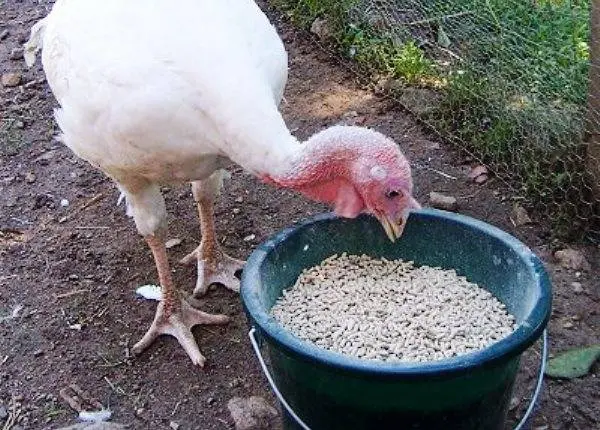
Breeding Canadian turkeys
The best age for producing offspring in a turkey is from 2 to 4 years. Canadian breed males are most active from 2 to 3 years of age. Canadian turkeys are twice the size of their girlfriends. Due to the large difference in body weight, these birds have problems with mating, which is why they sometimes resort to artificial insemination of Canadian breed females.
Mother hens have well developed maternal feelings, they patiently incubate eggs, carefully treat chicks. In order for the female of the Canadian breed not to become exhausted while hatching eggs, you need to place a feeder and water next to the nest.
Arrange a nest at a height of half a meter. Its dimensions should correspond to the size of this bird. Approximately 60 * 60 cm. The litter should be clean and dry, good straw or hay is used for it. The nesting room should be separate from the general house.
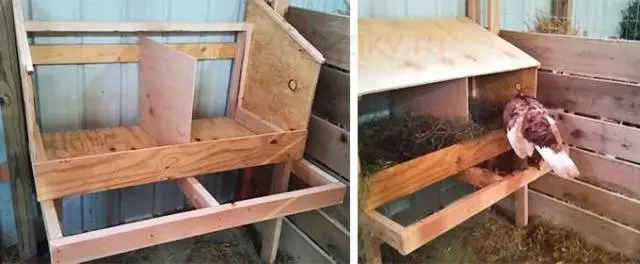
If a decision is made to grow turkey poults separately from their mother, then it is necessary to provide them with appropriate conditions of detention:
- The temperature in the first week of life should be 32-33 degrees, the second – 26-27 degrees, then – 22-23 degrees;
- Feeding in the first days can take place 8-10 times, then the frequency of food intake is gradually reduced;
- They are watered 4-5 times a day with water with the addition of potassium permanganate (a very pale solution) or special disinfectants;
- A box with Canadian turkeys must be constantly cleaned of feces and spilled feed. Sour food residues and droppings at a temperature of 30 degrees contribute to the rapid reproduction of dangerous microbes, and Canadian turkey chicks get sick very quickly;
- The transition to adult food is carried out by the growth of scallops.
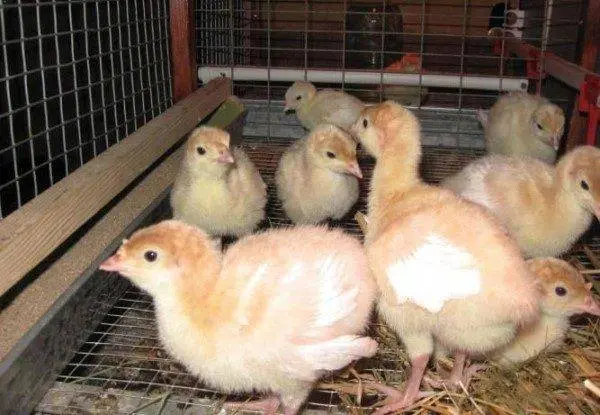
Buying Canadian Turkeys
In order to buy purebred turkeys of this breed, you need to find a well-established farm. When buying eggs for an incubator, turkeys, or adults, certificates are issued confirming that they belong to this species.









